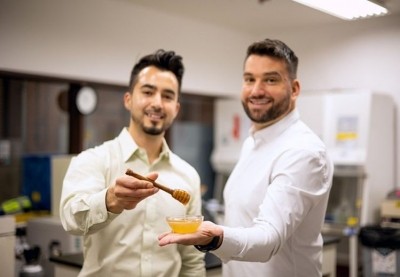Big Idea Ventures launches $125m fund to help fund food & ag startups commercializing ‘groundbreaking’ IP developed at universities

The Generation Food Rural Partners (GFRP) fund – which is teaming up with North Carolina State University as its inaugural collaborator - will work with multiple universities to identify research with the strongest commercialization potential and then invest in new companies formed around that research, said Big Idea Ventures chief investment officer Tom Mastrobuoni.
These new companies will be headquartered in rural communities near the collaborating universities, said Mastrobuoni, who said NC State’s work in plant science and plant-based food innovation coupled with its historical excellence in plant breeding and agricultural research made it the ideal inaugural partner.
‘We saw that the model would work, that we could take companies from university research, add capital, add talent, and help them get to a phase of commercialization’
Big Idea Ventures invests in early-stage alternative protein startups (via New Protein Fund I) and later stage companies reducing plastics, water, waste and carbon emissions throughout the supply chain (via Generation Food Fund I).
The new GFRP fund – which will focus on food, protein, and agriculture innovation - will take a longer-term view, said Mastrobuoni, who said his previous work at Tyson Ventures with Israeli cell-cultured meat startup Future Meat Technologies (which licensed technology coming out of Hebrew University), and more recent work via Big Idea Ventures with Novel Farms Inc (developing ‘tunable’ bio-scaffolding for cell-cultured meat utilizing research conducted at UC Berkeley) had highlighted the potential of forging closer partnerships with leading universities.
He told FoodNavigator-USA: “We understand that these companies will take longer to build, and we’re targeting a 15-year fund life, and a longer investment period, but we saw that the model would work, that we could take companies from university research, add capital, add talent, and help them get to a phase of commercialization.
“So we started identifying where there are opportunity gaps and white space not only in food tech, but in investing in foodtech, as there are a lot of funds out there now looking at the food space. We said where can we play where there isn’t another player?”
How can technology from unrelated industries transform the food industry?
So how significant could IP developed at universities be in forging the next generation of food and agtech startups seeking to create a more sustainable food system?
“One of the things we’ve learned is the number of corporations and government agencies that come to universities with problems to solve, from materials science challenges to scaffolding for cell-based protein,” said Mastrobuoni, highlighting exciting work coming out of Wageningen in the Netherlands and Hebrew University in Israel, although the initial focus of the GFRP fund will be on the US.
“And one of the great things is the unintended applications for many of these technologies. [Technologies developed for one industry could end up transforming another one, he said.]
"Research universities have a vast pool of talent exploring challenges for the food industry and we want our fund to be the first one there partnering with them. We’re looking at everything from fermentation technology to pasteurization technology, irrigation, drone technology, to new techniques for vertical farming.”
‘What you see so often is that really great young researchers create an interesting piece of IP and then they move to the Bay Area’
So where does the rural aspect of the fund come in?
“What you see so often is that really great young researchers create an interesting piece of IP [at a university in the Midwest, say] and then they move to the Bay Area or New York, because that’s where the capital is,” said Mastrobuoni.
“If we can reverse that flow and bring the capital to rural communities, we can keep those entrepreneurs local and drive economic growth and development in the center of the country, and we can show university faculty that it’s possible to develop and commercialize technologies and stay at the school to continue to develop the next great piece of technology.”
“Big Idea Ventures was founded to solve the world’s greatest challenges by backing the world’s best entrepreneurs. This new fund will widen our scope to capture breakthrough technologies from world-class universities that will impact the global food supply chain. The goal is to drive job creation and entrepreneurship in rural communities hungry for economic development and have them continue to be the centers of food innovation and production for generations to come.”
Andrew D. Ive, founder and managing general partner, Big Idea Ventures
COVID-19 and the food investment landscape
So how has COVID-19 impacted the food investment landscape?
Aside from prompting fresh interest in immunity, the microbiome, and e-commerce, the pandemic has also accelerated interest in alternative proteins, as it has exposed some of the vulnerabilities in a food system built around industrialized animal agriculture, said Abby Lyall, VP at Big Idea Ventures.
Investors also know that the fundamental challenges facing the food industry - how to feed a growing population as resources become increasingly strained - will still be there when COVID-19 hits the rearview mirror, she added.
“It’s caused us all to reflect on the relationships between food and health and the planet.”
Plant-based meat, cell-cultured meat
When it comes to cell-cultured meat, while it might be harder for new brands to attract significant funding now, there is a lot of opportunity in adjacent fields such as edible scaffolding, growth factors, filtration technologies, or bioreactors-as-a-service, said Mastrobuoni.
As for plant-based meat, “there’s a ceiling [to the addressable market], but I don’t know what the number is,” he said, noting that the space has quickly become crowded, with large CPG companies competing with legacy brands, startups, and all of the big meat companies for shelf space.
And again, this may mean that the smart investments going forward are upstream in the ingredients space, including edible scaffolding, "which is just as relevant to the plant-based meat space as the cell-based meat space," he said, noting that most plant-based products are processed burgers, nuggets, grounds and sausages (not whole cuts).
Researchers in NC State’s College of Agriculture and Life Sciences alone were awarded $96.5m in grants last year and exceeded $130m in research expenditures in 600+ active research programs, said Big Idea Ventures.











